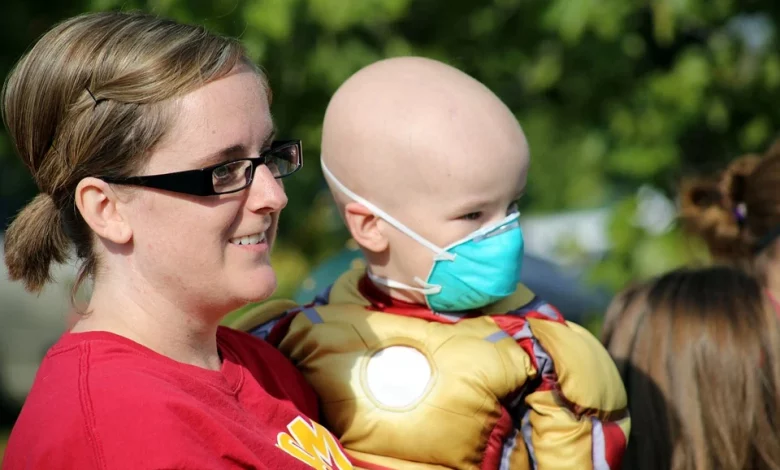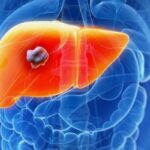Can Immunotherapy Cure Stage 4 Cancer?

What is stage 4 cancer?
Stage 4 cancer is sometimes referred to as metastatic cancer, because it often means the cancer has spread from its origin to distant parts of the body. This stage may be diagnosed years after the initial cancer diagnosis and/or after the primary cancer has been treated or removed. It is a serious disease that requires immediate expert care.
When a cancer metastasizes to a different part of the body, it is still defined by its original location. For instance, if breast cancer metastasizes to the brain, it is still considered breast cancer, not brain cancer. Many stage 4 cancers have subcategories, such as stage 4A or stage 4B, which are often determined by the degree to which the cancer has spread throughout the body. Similarly, stage 4 cancers that are adenocarcinomas are often referred to as metastatic adenocarcinomas.
Liquid cancers, or blood cancers, such as leukemia, lymphoma or multiple myeloma, are staged differently than most other cancers because they may not always form solid tumors. Liquid cancers may be staged by a variety of factors, including:
• The ratio of healthy blood cells to cancerous cells
• The degree to which lymph nodes, the liver or spleen may be swollen
• Whether the cancer has resulted in blood disorders such as anemia
Stage 4 cancer is determined in the five most common cancers this way:
Survival rates
Stage 4 cancer is not always terminal. It is usually advanced and requires more aggressive treatment. Terminal cancer refers to cancer that is not curable and eventually results in death. Some may refer to it as end-stage cancer. If a doctor determines that cancer is terminal, this usually means that the cancer is so advanced that treatment options focus on controlling rather than curing the cancer. More severe cancers are more likely to be terminal.
Survival rates convey the likelihood of living for a certain period, such as 5 years, after a doctor diagnoses cancer. The 5-year survival rate for people with breast cancer that has spread to distant areas of the body is 28%, meaning that 28% of people survive for this period.
The same figure for people with prostate cancer that has spread to distant areas is 30%, the American Cancer Society reports. Survival rates can vary, based on the type of cancer. The 5-year survival rate for mesothelioma that has spread to distant areas is 7%. For distant pancreatic cancer, this rate is 3%.
It is worth noting, however, that these rates are based on large quantities of data obtained in the past. They may not reflect recent advances in treatment and care. Also, a wide range of factors influences each person’s life expectancy.
What is Immunotherapy?
Immunotherapy is a type of cancer treatment that helps your immune system fight cancer. The immune system helps your body fight infections and other diseases. It is made up of white blood cells and organs and tissues of the lymph system. Examples include:
- Ipilimumab (Yervoy®)
- Pembrolizumab (Keytruda®)
- Nivolumab (Opdivo®)
- Atezolizumab (Tecentriq®)
If your treatment plan includes immunotherapy, knowing how it works and what to expect can often help you prepare for treatment and make informed decisions about your care.
Your immune system consists of a complex process your body uses to fight illness. This process involves your cells, organs, and proteins. Cancer can commonly get around many of the immune system’s natural defenses, allowing cancer cells to continue to grow.
Different types of immunotherapy work in different ways. Some immunotherapy treatments help the immune system stop or slow the growth of cancer cells. Others help the immune system destroy cancer cells or stop the cancer from spreading to other parts of the body. Immunotherapy treatments can be used alone or combined with other cancer treatments.
There are many types of immunotherapy. They include:
- Monoclonal antibodies and tumor-agnostic treatments, such as checkpoint inhibitors
- Oncolytic virus therapy
- T-cell therapy
- Cancer vaccines
The type of drug, dose and treatment schedule will depend on many factors. These can include the type of cancer, size, location, and where it has spread. Your age, general health, body weight, and how well you can cope with side effects are also important. Talk to your health care team about why they recommend a specific immunotherapy plan.
Can Immunotherapy Cure Stage 4 Cancer?
This generally depends on the type of cancer. Immunotherapy drugs work better in some cancers than others and while they can be a miracle for some, they fail to work for all patients. Overall response rates are about 15 to 20%. Generally, it can take about 2 months after initiating treatment to see a measurable response to immunotherapy.
Immunotherapy is still proving itself. It’s often used as a last resort, once other therapies have reached the end of their effectiveness. According to WebMD, the following are the list of cancers that immunotherapy is used to treat:
Bladder cancer. Today, there are six FDA-approved options for bladder cancer. They include:
• Targeted antibodies. This type of treatment disrupts cancer cells and alerts the immune system to target and kill them.
• Cancer vaccines. They help your body kill or stop cancer cells or keep them from coming back.
• Immune system modulators, which boost your overall immune response. Checkpoint inhibitors are one example.
Brain cancer. There are two approved types of targeted antibodies for brain and nervous system cancers. Researchers are testing several others in clinical trials to find out if immunotherapy might work where other treatments have failed.
Breast cancer. At first, doctors thought immunotherapy was a poor option for breast cancer. But newer studies suggest that certain women may benefit from it. They include women who make too much of a protein receptor called HER2. Several types of targeted antibodies take aim at the HER2 pathway. In 2019, the FDA also approved the first checkpoint inhibitor for breast cancer.
Cervical cancer. Doctors use three cancer vaccines to treat cervical cancer. The FDA also approved one checkpoint inhibitor and one monoclonal antibody, a type of targeted therapy.
Childhood cancer. There are several approved immunotherapy options for childhood cancer, such as certain types of leukemia, lymphoma, and brain cancer. These include:
• Targeted antibodies
• Checkpoint inhibitors
• Adoptive cell therapy such as CAR T-cell therapy, where your own T-cells are genetically modified to help your immune system find and destroy cancer cells
Colorectal cancer. Several targeted therapies and checkpoint inhibitors are used for this cancer. These may work best for patients with certain genetic traits.
Esophageal cancer. The FDA has approved two targeted therapies and one checkpoint inhibitor for this type of cancer. Researchers are looking at these ways to unleash immunotherapy against esophageal cancer:
• Use it before other types of treatment.
• Combine it with other therapies.
• Try to keep it from coming back.
Head and neck cancer. Immunotherapy may be especially helpful for people with human papillomavirus (HPV)-related head and neck cancers. It may also help avoid the intense side effects of other types of treatment. The FDA has approved one targeted antibody and two checkpoint inhibitors for these cancers.
Kidney cancer. Researchers are paying a lot of attention to this cancer. The first options used for kidney cancer were targeted therapies and cytokines, which are proteins made by white blood cells that spur your immune system to kill cancer cells. The FDA has also approved a monoclonal antibody and checkpoint inhibitors.
Leukemia. There are several approved immunotherapy options for this blood cancer. These include:
• Targeted antibodies
• Adoptive cell therapy
• Cytokines
Liver cancer. The hepatitis virus is a major cause of this cancer. The hepatitis B vaccine was the first vaccine developed to prevent cancer. We don’t have a vaccine yet for hepatitis C (HCV). But antiviral drugs that treat HCV may keep liver cancer from starting. Doctors can also use two types of checkpoint inhibitors for this cancer.
Lung cancer. Immunotherapy, used alone or with other types of treatment, has made a big difference for people with cancer in their lungs. Today, targeted therapies and checkpoint inhibitors may even be used ahead of treatments such as chemotherapy. However, immunotherapy does not cure stage 4 lung cancer, but it may help patients live longer.
Lymphoma. Immunotherapy is used to treat this blood cancer for adults and children. This includes:
• Targeted antibodies
• Checkpoint inhibitors
• Cytokines
• Adoptive cell therapy
Melanoma. Checkpoint inhibitors raise survival rates for some people with an advanced form of this skin cancer. Doctors sometimes also use cytokines and oncolytic virus therapy for this type of cancer.
Multiple myeloma. Several monoclonal antibodies are used to treat this blood cancer. Doctors may use them after a stem cell transplant to help keep cancer at bay.
Ovarian cancer. One monoclonal antibody is available now. But many immunotherapy trials are underway for this type of deadly cancer.
Pancreatic cancer. This cancer has few good treatments. Researchers are working hard to explore immunotherapy in trials. In the meantime, doctors may use a checkpoint inhibitor for patients whose cancer cells have certain genetic traits.
Prostate cancer. A cancer vaccine and a checkpoint inhibitor are available to treat some advanced cases of prostate cancer.
Sarcoma. This is a rare kind of cancer that starts in your bones or soft tissue. One type of monoclonal antibody is used to treat sarcoma. As with many cancers, more research is needed to better understand how other immunotherapies might help.
Skin cancer. Early skin cancers often respond well to traditional cancer treatments such as surgery. But advanced cases may benefit from immunotherapy. The FDA has approved several checkpoint inhibitors for skin cancers, including melanoma.
Stomach cancer. This is also called a gastric cancer. A checkpoint inhibitor and two targeted antibodies are approved to treat advanced cases of stomach or gastroesophageal cancer in certain people.





